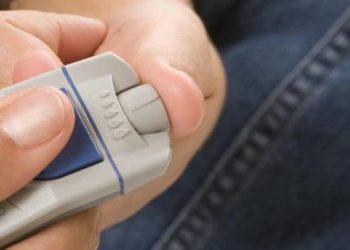Telemedicine may be associated with improved mental health outcomes
1. In this systematic review, majority of included studies showed a significant association between telemedicine and mental health improvement.
2. Furthermore, the most common telehealth methods included online apps and videoconference.
Evidence Rating Level: 2 (Good)
Telehealth has been a frequently used method of healthcare delivery during the COVID-19 pandemic, due to its efficiency and ability to provide long-distance care. This has been of particular relevance for those who have been isolated such as those who suffer from mental health disorders. Mental health issues have risen since the pandemic, but have not been studied in relation to telehealth. As a result, the objective of the present systematic review was to investigate the association of telemedicine and the improvement of mental health outcomes.
Of 538 identified records, 12 studies (n=1900) were included from database inception to February 2022. Study quality was assessed using the Newcastle-Ottawa Scale (NOS). Studies were included if they studied the mental health outcomes of telehealth on patients who were susceptible to mood and anxiety disorders. The primary outcome was the improvement of psychological and mental problems. The study was conducted using the Preferred Reporting Items for Systematic Reviews and Meta-Analyses (PRISMA).
Results demonstrated that 11 of 12 studies demonstrated a significant effect of telemedicine on various aspects of mental health, with anxiety and depression being the most prevalent measured outcomes. Furthermore, the most common online telecommunication methods included online applications and videoconference. Despite these results, the study was limited by the fact that the overall heterogeneity was not examined. However, these findings suggest that telemedicine may be an efficacious medium to improve mental health disorders during the COVID-19 pandemic.
Click to read the study in International Journal of Methods in Psychiatric Research
Image: PD
©2022 2 Minute Medicine, Inc. All rights reserved. No works may be reproduced without expressed written consent from 2 Minute Medicine, Inc. Inquire about licensing here. No article should be construed as medical advice and is not intended as such by the authors or by 2 Minute Medicine, Inc.







